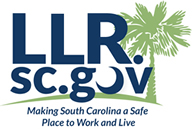Hello REALTORS®,
This Watchdog Report focuses on infrastructure funding, particularly roads, and how it affects Realtors. Last week, Anderson County Council gave first reading to an ordinance to hold a referendum on whether to collect an additional penny sales tax for roads. Second reading is set for this week.
Another Penny Sales Tax Referendum?
You may be asking, didn’t I just vote on that? If you live in Anderson or Greenville counties, yes, you did. Both referendums failed by narrow margins. Greenville County is discussing another referendum, but not until 2026. Anderson County voters could vote again in November.
What is a Local Option Sales Tax
State law allows several ways for local governments to impose a sales tax in addition to the statewide 6% sales tax. The most common is the prepared foods tax you pay when you eat at a restaurant. That money is used to promote travel and tourism. Other optional sales taxes are used for infrastructure, transportation, schools, and other government services.
Are Local Option Sales Taxes Collected in the Western Upstate
Yes. Nearly every city and county collect the prepared foods tax, but only Anderson County collects an additional 1% sales tax—for schools. Most of that penny reduces property taxes, with the remainder used by the county’s five school districts.
What is being proposed, and how is it different from last year’s referendum?
The proposed 1% sales tax will raise about $35 million per year for 8 years to pay for:
- Repaving 450 miles of county roads
- Replacing 16 bridges
- 20 safety-related projects.
That’s it—no parks, sidewalks, or bike paths—just roads, and almost all of it repaving.
Why?
In every planning commission and budget meeting I attend across the Western Upstate, roads are a central issue. All three counties in the Western Upstate struggle to maintain their roads, and to respond to angry constituents who are frustrated with traffic. State government under invested in state roads for decades until the gasoline tax was increased in 2017, which has left a legacy of inadequate roads.
To answer the complaint that the Anderson County has enough money, Councilman Jimmy Davis recently discussed how the county’s property tax revenue is spent:
- 70% to schools (about $235 million)
- 14% to public safety and EMS (about $47 million)
- 13% to administration/operations/planning/courts etc. (about $44 million)
- 3% to public works (all infrastructure) (about $10 million)
The county has two sources of revenue for roads:
- The portion of the gas tax allocated to county/city roads—about $4.1 million per year.
- $300,000 from the public works budget for basic repairs like filling potholes.
Anderson County has 1,550 miles of county-maintained roads. It costs between $600,000 and $1 million to repave one mile of road, depending on its condition. With current funding levels, 1,550 miles of roads can be repaved once in 300 years without an infusion of new money.
Current events highlight the need for better understanding of infrastructure, especially roads. Earlier this week, a bridge on SC 133 in Pickens County collapsed. Two other bridges on SC 183 are being rebuilt, with traffic detouring onto SC 133. What that means is that the already congested US 123 through Clemson will be even more congested.
If you made it this far, thank you. Explaining complex topics like this is hard, but understanding them is important to being an informed voter.
RPAC is Important
If real estate is your profession, politics is your business. It’s inescapable, which is why your association devotes its resources to advocacy.
RPAC is an important element of your Realtors Association’s advocacy program. About one-third of our members support RPAC, including some who do more—a lot more.
One member who has done a lot more is Reah Smith of Lake Keowee Real Estate. Rea is a Major Investor, which means she contributes to RPAC at the $1,000 level each year. Rea also participates in RPAC’s President’s Circle, which means she also contributes to the campaign of a REALTOR® Champion, a member of Congress with a strong record of supporting the REALTOR® Advocacy Agenda. Thank you, Rea, for your leadership in supporting RPAC.

I encourage all Realtors to support RPAC, and we make it easy to do so. We include a voluntary $25 RPAC contribution ($100 for brokers) on your annual dues renewal. Simply pay it and you have supported RPAC. If you want to do more, that’s easy too.
Michael Dey, Director of Government Affairs



